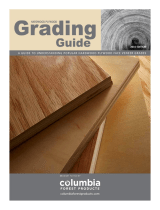
A–19
Preparation
A
WARNINGS for Batteries
Never heat or throw batteries into a fire,1. as this could cause
the batteries to leak corrosive liquids, generate heat or explode.
Do not short-circuit or disassemble the batteries2. because this
could cause the batteries to leak corrosive liquids, generate heat or
explode.
Do not mix battery types, brands or old and new batteries,3.
as this could cause the batteries to leak corrosive liquids, generate
heat or explode.
Do not install batteries in the reverse direction as this could 4.
cause the batteries to leak corrosive liquids, generate heat or
explode. Even if only one battery is installed in reverse it will
cause the Speedlight to malfunction.
Be sure to use the battery charger specified by the battery 5.
maker to avoid the possibility of batteries leaking corrosive liquids,
generating heat or exploding.
Do not carry or store batteries along with metallic materials 6.
such as necklaces and hair pins because such materials could
cause the batteries to short-circuit, leading to battery leakage,
heat generation or an explosion. In addition, especially when
carrying a quantity of batteries, place them carefully in
a storage case that prevents the battery terminals from
touching another battery’s terminals because if they touch
in reverse order it could also cause the batteries to short-circuit,
leading to battery leakage, heat generation or an explosion.
If corrosive liquids seep from the batteries and get in your 7.
eyes, immediately wash your eyes with running water and
consult with a doctor. Your eyes could be seriously damaged if
they are not treated quickly.






















